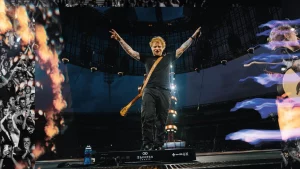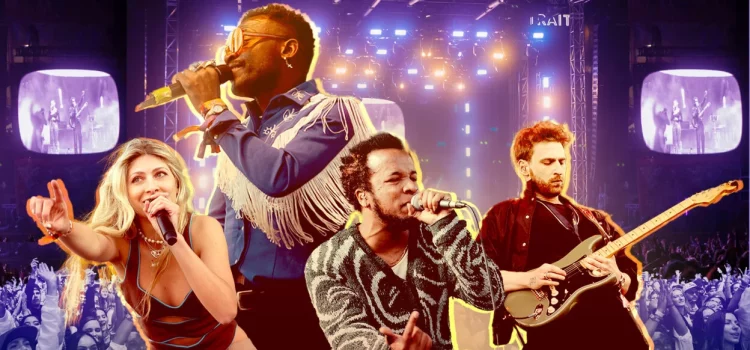
Introduction
The global music festival scene has long been a vibrant and essential part of the cultural landscape, bringing people together to celebrate music, art, and community. However, the COVID-19 pandemic brought this thriving industry to an abrupt halt, forcing organizers, artists, and fans to adapt to a new reality. As the world begins to recover, the future of music festivals is being reimagined in ways that could shape the industry for years to come. This article explores the potential changes and innovations that could define the future of music festivals in a post-pandemic world.
The Impact of the Pandemic
The pandemic had a profound impact on the music festival industry. Events were canceled or postponed, leading to significant financial losses for organizers, artists, and vendors. The absence of live music experiences left a void for fans who rely on these events for entertainment and social connection. However, the industry’s resilience and adaptability have sparked a wave of innovation that could redefine the future of music festivals.
Technological Advancements

1.Virtual and Hybrid Festivals
One of the most significant developments during the pandemic was the rise of virtual music festivals. These online events allowed artists to perform and connect with fans from the safety of their homes. While virtual festivals cannot fully replicate the in-person experience, they have shown that technology can play a crucial role in the future of music festivals.
Hybrid festivals, which combine in-person and virtual elements, are likely to become more common. These events can reach a global audience while maintaining the unique atmosphere of a live festival. For example, attendees could watch performances online, interact with other fans through chat rooms, and even participate in virtual meet-and-greets with artists.
2.Augmented and Virtual Reality
Augmented reality (AR) and virtual reality (VR) technologies have the potential to revolutionize the music festival experience. AR can enhance the live experience by overlaying digital content onto the physical world, creating interactive and immersive environments. VR, on the other hand, can transport users to a virtual festival ground, allowing them to explore, interact, and enjoy performances as if they were there in person.
These technologies can also provide new revenue streams for organizers and artists. Virtual merchandise, exclusive content, and premium experiences can be offered to fans, creating additional value and engagement.
Health and Safety Measures

1.Enhanced Sanitation and Hygiene
The pandemic has heightened awareness of health and safety, leading to increased sanitation and hygiene measures at music festivals. Organizers will need to implement rigorous cleaning protocols, provide hand sanitizing stations, and ensure that high-touch areas are regularly disinfected.
2.Health Screenings and Vaccination Requirements
Health screenings, such as temperature checks and rapid testing, may become standard practice at music festivals. Some events may also require proof of vaccination for entry. These measures can help reduce the risk of infection and provide peace of mind for attendees.
3.Contactless Technology
Contactless technology, such as mobile ticketing, cashless payments, and touchless entry, will likely become more prevalent. These innovations can streamline the festival experience, reduce physical contact, and minimize the risk of virus transmission.
4.Sustainability and Environmental Impact
The pandemic has prompted a renewed focus on sustainability and environmental responsibility. Music festivals can adopt eco-friendly practices, such as reducing single-use plastics, promoting recycling, and using renewable energy sources. Additionally, organizers can encourage attendees to use public transportation or carpool to reduce the event’s carbon footprint.
Community and Inclusivity

1.Supporting Local Communities
Music festivals can play a vital role in supporting local communities by partnering with local businesses, artists, and vendors. This collaboration can boost the local economy and create a sense of community pride and ownership.
2.Inclusivity and Diversity
The future of music festivals will likely see a greater emphasis on inclusivity and diversity. Organizers can create more inclusive environments by featuring diverse lineups, providing accessible facilities, and promoting a culture of respect and acceptance.
Future Trends in Music Festivals

1.Experiential and Thematic Festivals
-
Immersive Experiences
Festivals are increasingly focusing on creating immersive experiences that go beyond music. These may include art installations, interactive workshops, and themed environments that provide attendees with a multi-sensory experience.
-
Wellness and Wellbeing
Wellness-oriented festivals are gaining popularity, offering activities such as yoga, meditation, and wellness workshops. These events cater to attendees seeking a holistic experience that combines music with personal well-being.
2.Technological Integration
-
Advanced Ticketing Systems
Future festivals will likely adopt advanced ticketing systems that use blockchain technology for secure transactions and fraud prevention. These systems can also offer personalized recommendations and seamless entry processes.
-
Data-Driven Personalization
Using data analytics, festivals can offer personalized experiences based on attendees’ preferences. This personalization might include tailored schedules, customized notifications, and exclusive content recommendations.
Conclusion
The future of music festivals in a post-pandemic world is filled with possibilities. Technological advancements, enhanced health and safety measures, sustainability initiatives, and a focus on community and inclusivity will shape the industry in new and exciting ways. While the challenges of the pandemic have been significant, they have also provided an opportunity for innovation and growth. As the world continues to recover, music festivals will undoubtedly remain a cherished and essential part of our cultural landscape.










